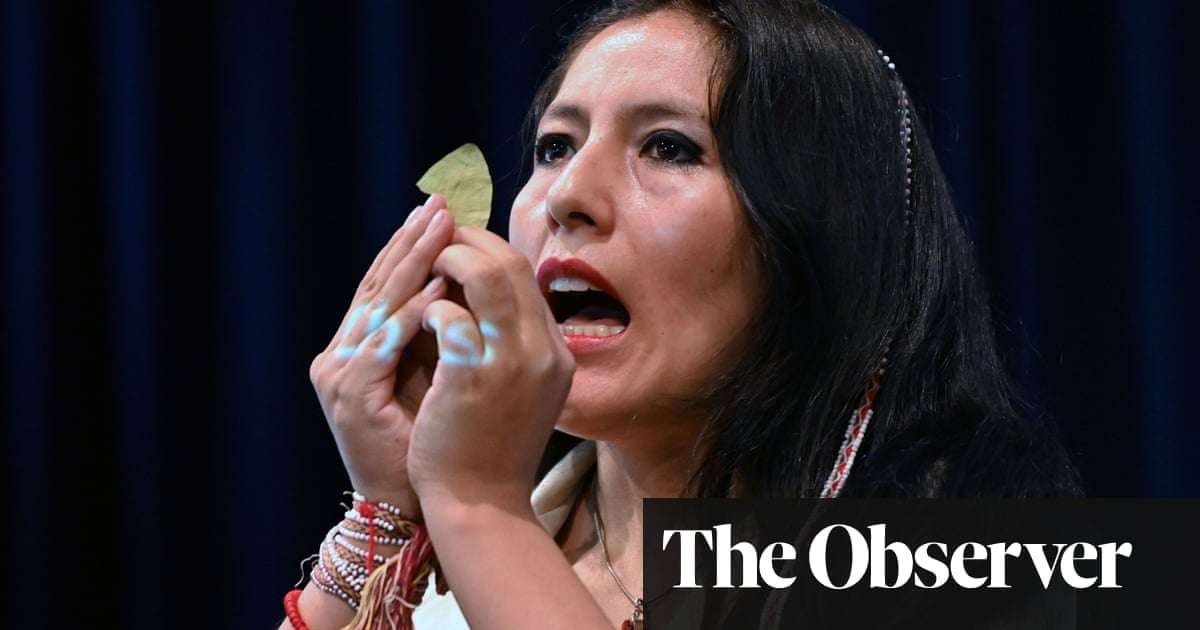Quechua is still spoken by 8 million people across the Andes, but Roxana Quispe Collantes hopes she can give it added value
A doctoral student in Peru has made history by becoming the first person to write and defend a thesis in Quechua – the language of the Incas, which is still spoken by millions of people in the Andes.
Roxana Quispe Collantes received top marks from Lima’s San Marcos university, the oldest in the Americas, for her study on Peruvian and Latin American literature, which focused on poetry written in Quechua.
Scholars say it is the first time in the university’s 468-year history that a student has written and defended a thesis (answering questions from examiners) entirely in the native language – even though it is the most widely spoken indigenous tongue in South America, used by about 8 million people, half of them in Peru.
Beginning her presentation with a traditional thanksgiving ceremony using coca leaves and the corn-made alcoholic drink chicha, she presented her study titled Yawar Para, or blood rain.
“It has been a long road but it was worth it,” said Quispe Collantes, who travelled to highland communities in the Canas to verify words used in the Collao dialect of the language used in the Cusco region. “I’ve always wanted to study in Quechua, in my original language,” she told the Observer. Quispe Collantes grew up speaking Quechua with her parents and grandparents in the Acomayo district of Cusco.
Her seven-year investigation focused on the Quechua poetry of Andrés Alencastre Gutiérrez (1909-84), a landowner from Cusco who wrote under the pen name Kilku Warak’aq. She analysed his work and the combining of Andean traditions and Catholicism.
Call me by my name: Peru promotes use of indigenous names in public records Read more
“Quechua doesn’t lack the vocabulary for an academic language. Today many people mix the language with Spanish,” she said.
“I hope my example will help to revalue the language again and encourage young people, especially women, to follow my path. It’s very important that we keep on rescuing our original language.”
Quispe Collantes’s doctoral adviser Gonzalo Espino said her presentation was hugely symbolic because the language “represented the most humble people in this part of the world: the Andeans, who were once called ‘Indians’. Their language and culture has been vindicated.”
Peru has joined a global effort to register indigenous names as part of the United Nations International Year of Indigenous Languages, which is trying to help revive 2,680 at-risk indigenous languages around the world – 21 of which are native to Peru.
arlier this year Peru promoted the official registration of names from its 48 indigenous languages. In 2016, the state television channel aired its first news broadcast in Quechua. It has since broadcast news bulletins in Aymara and Ashaninka, Peru’s most widely spoken Amazonian language.
The Bible has been translated into the indigenous language as well as Cervantes’ classic Don Quixote, whose translator Demetrio Túpac Yupanqui died last year.
“My greatest wish is for Quechua to become a necessity once again. Only by speaking it can we revive it,” Quispe Collantes said.

Stokiba on October 27th, 2019 at 15:06 UTC »
Meanwhile in the Netherlands its getting increasingly difficult to find university courses in Dutch
thegtabmx on October 27th, 2019 at 14:41 UTC »
r/titlegore
"Let's make this title longer by prefacing it with entirely redundant information"."
punishmentbrigade1 on October 27th, 2019 at 12:54 UTC »
From 2017
Okay, so that second article from 2017 about Carmen Escalante Gutiérrez mentions that her defense was in Quechua without any details about the dissertation itself, but the point is that The Guardian article has a misleading title, which is unusual for a publication of its caliber. I found the article about Gutiérrez in just a few seconds of searching. I wonder how many more there are like her out there.